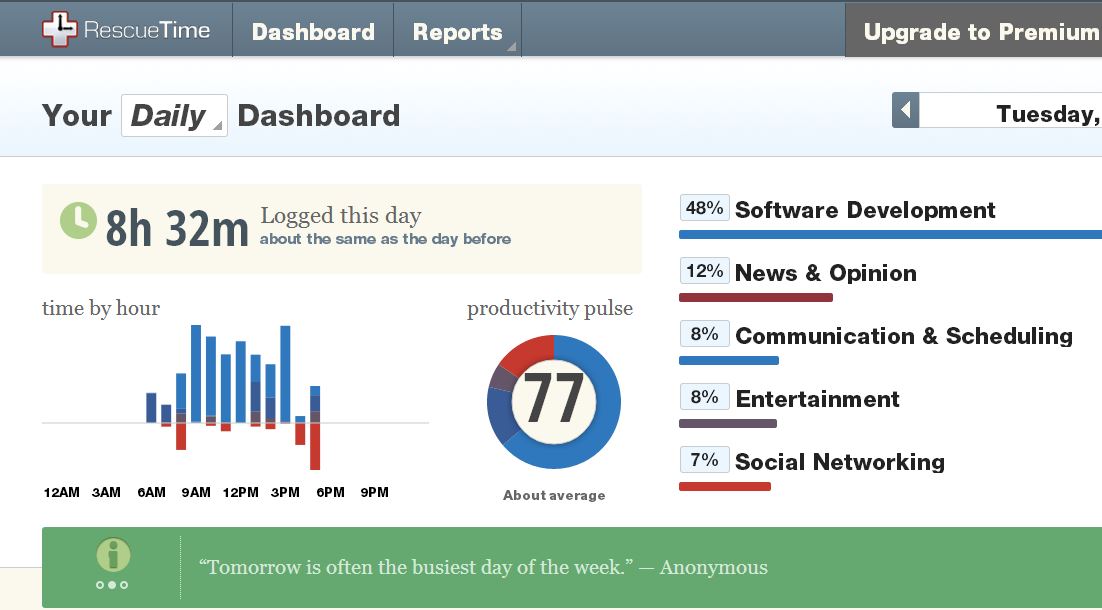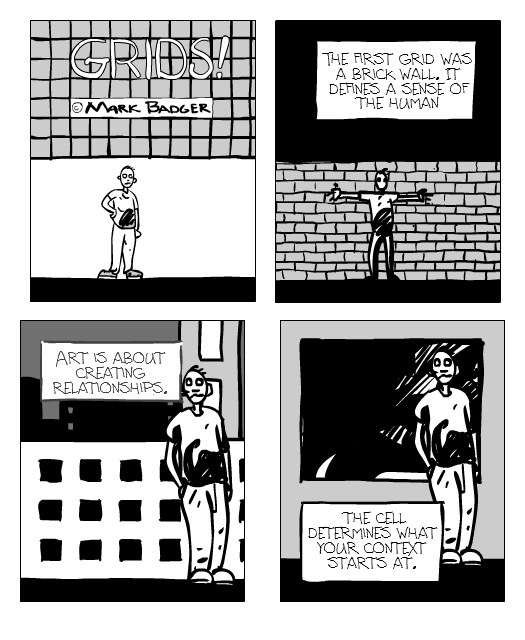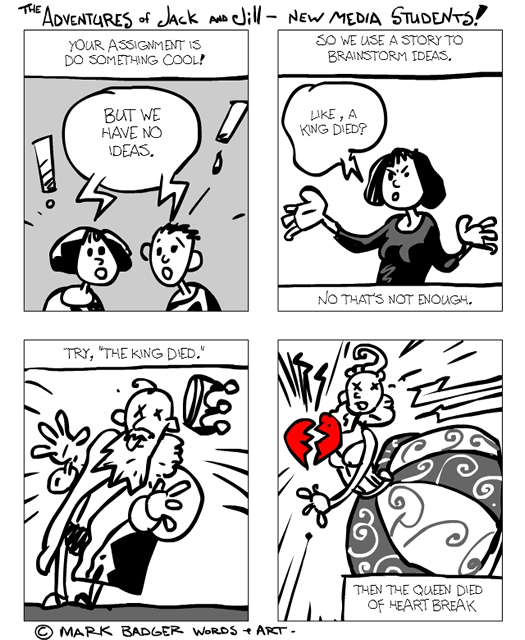Over the last 13 years I taught a lot of classes, in creativity, programming and even a few in drawing comics. I was always crystal clear to myself. My jokes always made me laugh.
Like…
for (var i= 0; i < 10; i++){
BangHeadAgainstWall()
}
( Wikipedia explains the joke http://en.wikipedia.org/wiki/For_loop )
Because if you get the joke, repeating yourself is an important teaching tactic. But if you’ve never heard of a “for loop”, you just sputter, as you bang you head against the wall. It’s easy, when you know the punchline, to get the joke. When you don’t speak the language, jokes are hard. When your learning anything you don’t get the jokes. Figuring out that students don’t get your jokes is the first step. Empathy with your students is a foundation skill.
When I started teaching I got all my jokes. My students would laugh with me. Then, since they were Grad Students, I would advise on their thesis projects a year or two later. They couldn’t remember a thing I taught them. They had just laughed to be polite to the teacher.
Just facts, even with jokes, aren’t enough. Doing a skill set once isn’t enough. Doing a project doesn’t mean they’ve got the ability to use information in a different context. Practicing skills once, doesn’t set it into the students brain.
A teacher has to decipher a student’s laughter. Nervous confusion? Bored with the repetition sigh? A to cool to admit their lost smile?
Or pleasure in understanding? That’s what assessment is.
Climb the Mountaintop of Assessment
Knowing where your students are in the material is the real part of teaching. A good teacher tests all the time. Simple questions to micro tasks tell you what they understand, know and can do. Teaching, isn’t a simple task oriented architecture like business, it’s ongoing improvisation to develop understanding. That’s why business people talking about education, is mostly twaddle.
It’s a performance to engage intellects. It’s a game where you find your opponents weakness. Instead of bouncing the ball of their head to score points, you improvise to let them win. The rules change for every opponent.
It’s a fascinating game to play. The foundation of real teaching is assessment.
Can I teach me?
Drawing funny books for yourself can get dull. With no editor whining about his schedule and deadlines, it’s easier to read sports pages. I never achieved commercial success with market driven super hero work. I could work out of hip bitterness, chase the current trends, and just cut my wrists. I’m getting now why my fine arts teachers in school always talked about their projects. They were teaching themselves as they worked. It wasn’t just here’s my style, this is what I do. They were using Cezanne as a model, he checked every brush-stroke to see if it’s right, to slowly build masterpieces.
Buddha always said “test these things out for yourself”. Testing what an interesting idea. Tests, not the SAT’s test, but those small assessments of where I am and where am I going. Question that I need to answer for myself as I draw comics. Turning comics into shooting foul shots, so I can see what I’m doing and what is the right way to do it.
My eyesite is all fucked up, can I still shoot hoops?
How do you reduce comics down to shooting a basket? Pull apart the small parts of a comic. Not just the penciling, plotting scripting inking coloring, the production line of Ford comics. But the real craft of making comics.
But what is the structure in a head for cartooning versus realism? What are the basics of a simple plot that everything is elaborated on? How are a four panel joke set up and how do you transfer that to a soliloquy? Or how do you keep your focus and draw over a period of time without facebook, twitter, sports page and politics dragging you away.
It’s a two part challenge.
1. Develop assignments for small directed practice of parts that I want to work on.
2. Develop ways to assess what I am doing, what are my goals, what am I doing and how will I tell if I have succeeded
A Simple Example
The assignment: Stop waisting time on the internet when you should be drawing. The goal is to work 7 hours a day on actual work not on all the things I can do on my computer.
The Test: Red bars during my work day in Rescue Time.
Rescue Time is a small app that logs all the apps and websites on a computer then graphs it out for you. You can categorize sites and apps as productive or non-productive, IN other words at the end of the day I can track if I have been a bad or good student for the day. https://www.rescuetime.com
A Gold Star Day!

Go Stand in the Corner!

What’s Next
Time management is easy to test. Drawing skills are harder. I was never able to draw in the house style, I”m not interested in academic styles either cartoony, alt or Marvel. So can I define what is a good Mark Badger drawing? Can I break parts down into small tasks that I can practice without drawing the whole page? Can I take the skills I've learned over the last thirteen years and apply them to myself. Maybe I’ll figure out some new jokes.
 A teaching comic on grids.
A teaching comic on grids. Comic on Storytelling
Comic on Storytelling